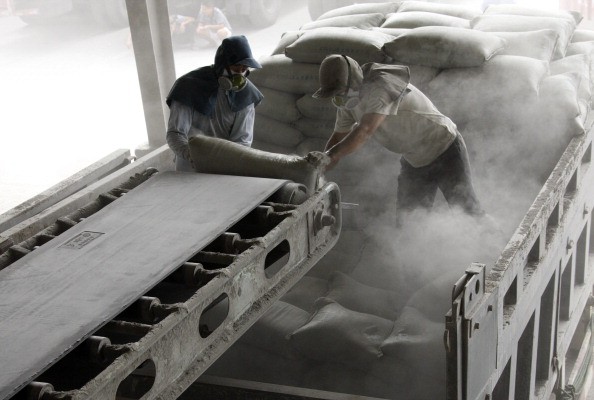China National Building Material Group (CNBM), the biggest cement maker in the country, is taking advantage of business opportunities presented by the "Belt and Road" initiative, which spurred infrastructure boom in the region, Song Zhiping, the company chairman, said in a Bloomberg Television interview in Zhuzhou, Hunan Province.
"If you want to get rich, build a road first," Song said. "If you want to build a road, you need cement."
Song made the remarks as Beijing is set to host the Belt and Road Forum on International Cooperation starting Sunday, May 7. The summit is expected to strengthen China's vision to revive the ancient Silk Road, the trade route that links China with the Asia and Europe.
According to the official State Information Center think tank, about 16 percent of the global economy and about one-fifth of global trade last year could be attributed to countries along the Silk Road trade route.
In the past 10 years, about 312 large production lines were built by the China cement giant in countries along the path of the Belt and Road initiative.
Song said that they will continue to look for opportunities, with plans to expand the firm's reach through acquisitions and takeovers.
Last year, China reorganized its state-owned enterprises, resulting in the merger of CNBM with China National Materials Group Corp., also known as Sinoma.
Bloomberg said that the merger had also resulted in the combined cement capacity of about 516 million tons, which accounts for as much as 19 percent of the national total, with capacity distributed across the country.
Cement prices are expected to stabilize in the country as China continues with overcapacity reduction in industries that involve coal, cement and steel, according to Song.
Amid an oversupply, cement prices dropped to record lows in the past two years. The prices only started to pick up in the fourth quarter as China implemented shutdowns in off-peak production, the report said.
According to Song, the company will start to get rid of old and useless production facilities. He also urged the industry to continue to reduce overcapacity in the long run.




























